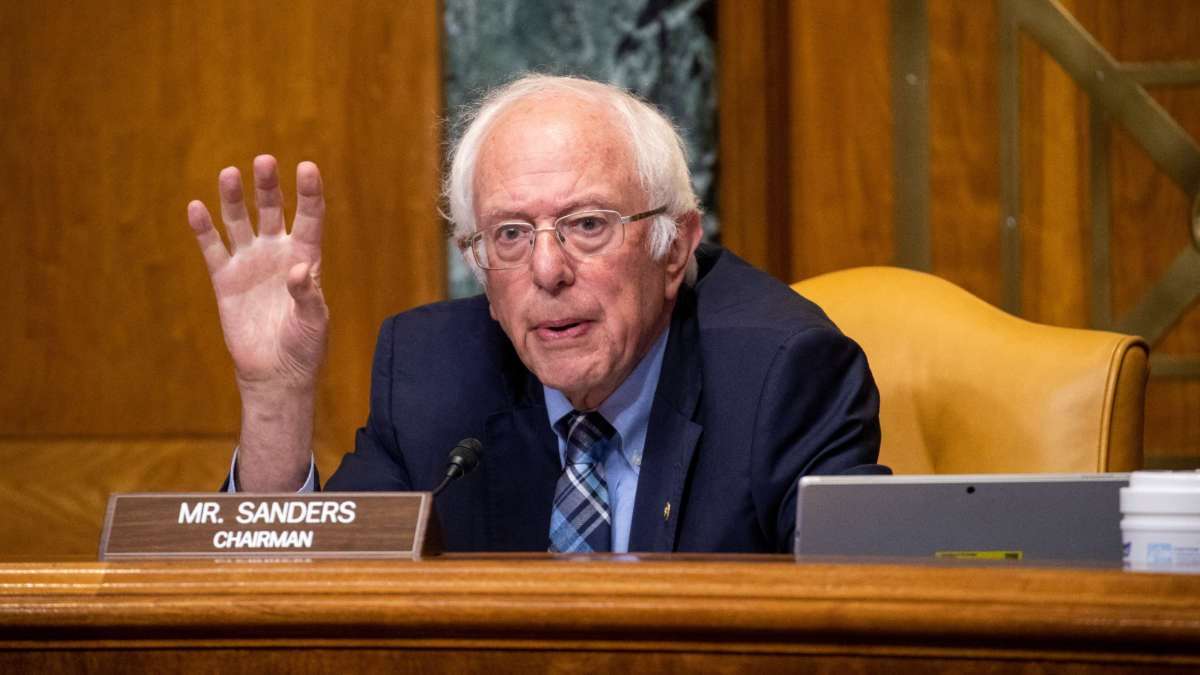On Wednesday, Sen. Bernie Sanders (I-Vermont) called for marijuana to be legalized and for past marijuana-related convictions to be erased, as legislation to do so has stalled in the Senate.
“Legalize marijuana. Expunge past marijuana convictions. End the failed War on Drugs,” Sanders wrote on Twitter.
Sanders’s statement came among an influx of other legislators calling for the passage of the Marijuana Opportunity and Reinvestment (MORE) Act, which the House voted to pass earlier this month. The bill, which would allow people convicted of certain marijuana crimes to have their records expunged and fully decriminalize marijuana across the country, has stalled in the Senate, where it has little chance of passing due to Republican opposition and the filibuster.
Rep. Pramila Jayapal (D-Washington) called for the abolishment of the filibuster in order to pass the legislation. “Today would be a great day for the Senate to end the filibuster and pass the MORE Act — which would legalize marijuana and expunge records,” Jayapal said on Wednesday.
Senate Democrats say that they’re working on their own legislation to legalize marijuana that would tweak the way marijuana importers and sellers are taxed.
Let’s be blunt. We’ve got people behind bars while others make millions in the cannabis industry. On 4/20, we need @POTUS to pardon all cannabis convictions, wipe marijuana debt, free anyone currently incarcerated for it and LEGALIZE marijuana. — Jamaal Bowman (@JamaalBowmanNY) April 20, 2022
Legalizing marijuana is a hugely popular issue among voters. In November, Gallup found that support for marijuana legalization, which has been increasing steadily over the past decades, is at an all-time high of 68 percent.
Drug legalization advocates and people convicted of marijuana-related crimes say that the passage of the MORE Act could be a huge advancement of social justice in the country. Black people are nearly four times more likely to be arrested for marijuana; Black and Latino men also receive longer prison sentences than white men arrested on similar drug charges.
Even with legalization, these racist disparities remain. In every state where marijuana is currently legal, Black people are still more likely to be arrested for marijuana-related charges.
The MORE Act takes steps to try to alleviate racial justice issues created by marijuana criminalization and the war on drugs by taxing sales on legal marijuana and redistributing the funds to communities that were especially damaged by the war on drugs. It would also require the Bureau of Labor Statistics to regularly publish data on the demographics of marijuana business owners and employees in hopes of bringing transparency to the industry, which is currently mostly white-owned.
Some social justice activists have also been seeking to create democratically-owned businesses as the marijuana industry develops from its nascent stages. In Rhode Island, for instance, workers are asking state legislators to reserve licenses for worker-owned cooperatives within the industry in order to ensure that there’s space for more equitable businesses with support and participation from the communities they serve.
Legalizing marijuana could also be a huge boon for the government’s coffers. A recent report found that states that have decriminalized marijuana have collected more than $10 billion in tax revenues since 2014. Additionally, a study released last week found that legal marijuana reduces demand for prescription drugs obtained through Medicaid funded by state programs.
“The reductions in drug utilization that we find could lead to significant cost savings for state Medicaid programs,” said Shyam Raman, a doctoral student at Cornell University and co-author of the study. “The results also indicate an opportunity to reduce the harm that can come with the dangerous side effects associated with some prescription drugs.”
Copyright © Truthout. May not be reprinted without permission.

Soranos_71 on April 21st, 2022 at 11:30 UTC »
I ran into some guy in the parking lot at the supermarket that was trying to get me to sign a petition to pass some law where cannabis shops couldn’t be a certain distance from schools or churches. Ok I get not wanting them near schools but why churches? I said no when I realized that it would have probably made it that no cannabis shops could open in my area because of the way churches and schools are spread out in my area. It would keep the cannabis shops in the “low income” areas.
We have a few near a couple of shopping strip malls in my area, they took up residence in store fronts that shut down during covid. I figure might as well let them open up somewhere useful instead of seeing dreary empty store fronts.
NPVT on April 21st, 2022 at 09:50 UTC »
The war on drugs was a success for private prisons and the police.
breadsticksword on April 21st, 2022 at 08:30 UTC »
Congratulations to drugs for winning the war on drugs